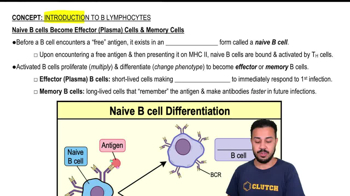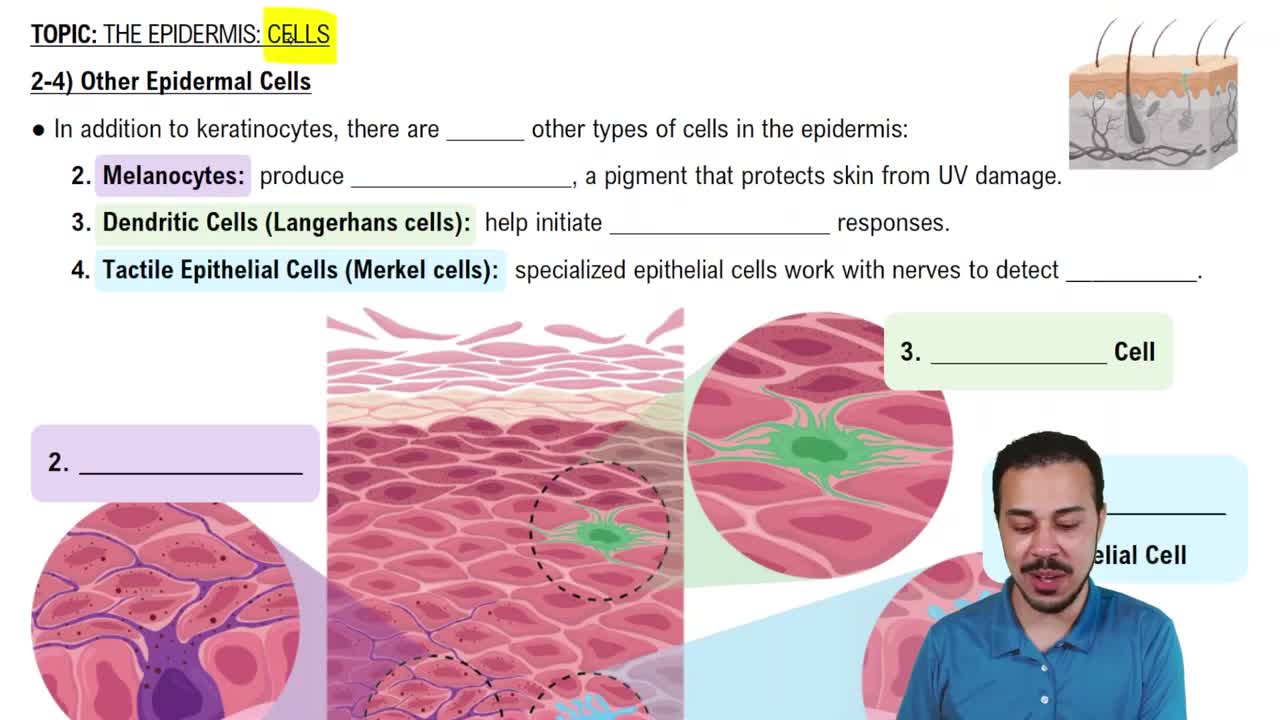The most numerous WBC is:
a. Eosinophil
b. Neutrophil
c. Monocyte
d. Lymphocyte
 Verified step by step guidance
Verified step by step guidance Verified video answer for a similar problem:
Verified video answer for a similar problem:



 4:5m
4:5mMaster Introduction to Leukocytes with a bite sized video explanation from Bruce Bryan
Start learning